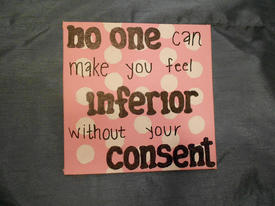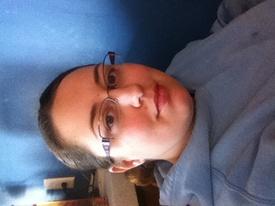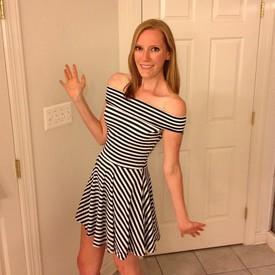Calorie Counting 101
Replies
-
I recommend grams because regardless of if the serving size is 3 cups, 2 pieces, 1 container, 4 oz, it will always give a number in grams in parenthesis. Since you always have a number in grams it saves you the trouble of having to convert from grams to ounces all the time. Plus if the serving is something like 22 grams, that's going to be .78571 ounces. Not a fun number to deal with...
Makes sense. I have always just rounded up when it comes out to a weird number like that. Now in order to change all the entries in my diary would probably be a nightmare, but going forward I will weigh in grams. Thanks for your help and responding so quickly!-1 -
Very helpful. Thank you for posting this!0
-
Awesome thread. Everyone posting "Halp, I am not losing weight!?" should be directed here.2
-
Bump to Keep this thread going. Should be mandatory read for newcomers2
-
They should sticky this in the"getting started"0
-
Geez, you must have a never-ending supply of self-control and motivation to do something like this (weighing to the gram, always overestimating calorie amount, etc.).
it doesn't take self control and movtivation to weigh in grams it takes a kitchen scale on the kitchen counter and habit...5 -
[/quote]
it doesn't take self control and movtivation to weigh in grams it takes a kitchen scale on the kitchen counter and habit...
[/quote]
This.2 -
batteries, you also need batteries.
it doesn't take self control and movtivation to weigh in grams it takes a kitchen scale on the kitchen counter and habit...9 -
Good advice all around, Vismal. After reading this I started making my usual morning smoothie. ON protein calls their serving size a "heaping scoop." I've always wondered how much heaping that meant, if at all. I thought they might be tricking you into over-serving yourself. But no. This thread motivated me to finally weigh my protein powder. It turns out that 33 grams is as much powder as you can possibly balance above and beyond the scoop. I've been under-serving myself all these months.4
-
Thanks for the great post! I did a copy and past so I can print it out and put it in my binder of useful information! YES, I still do things in a binder as well as online. For me it is helpful. Thanks again!2
-
bump to read later0
-
Thanks for the post (very informative).
BTW I really enjoy your YouTube channel (Feeding Fitness). Keep them videos coming!1 -
The way I figure it, you can fool yourself all you want (not weighing food, "eyeballing", estimating, etc), but at the end of the day, your BODY doesn't care how you tracked - it only cares if you took in more or less energy than you burned.5
-
Awesome post, thank you! :flowerforyou:0
-
Thanks for all the help. I will definitely start using all these tips.0
-
Bump0
-
Vismal you rock. I agree this needs to be stickied.0
-
Eh, I don't know. Calorie Counting has some pretty obvious advantages. Assuming a lack of complicating factors (e.g. metabolic disorders) along with consistent and relatively accurate logging, counting calories has a very strong rational appeal. Problem >> Data >> Math >> Solution. Fairly simple. Note that the complication factors don't negate an approach centered around looking at the energy balance of a system; it just makes it less simple.
What's simple isn't always what's easy, though. For instance, I could:
-get burned out on counting calories because I have enough other stuff going in my day-to-day.
-become obsessive about tiny inaccuracies.
-End up feeling weird about a natural process (Hunger >> eat) being dictated by a more analytical approach.
All of that is about how someone "feels" which can end up being incompatible with calorie counting. That kind of stress doesn't always have an on/off switch. There is some appeal to following a set of guidelines that isn't based on calories. Obviously it works the same way. To lose weight, you're burning more than you take in. But if I am burned out on counting calories, and I'm left with following hunger signals and satiety as a means of helping me lose weight, then "food quality" becomes more important for reasons apart from overall health, getting my micros, and getting enough fiber.
In no way am I a clean eater just for my own personal ideology. I love my processed foods. But, in my experience, the more highly processed foods that I enjoy also tend to be more energy-dense and less satiating per calorie. For those reasons, if I need a calorie counting break, I kind of have to eat more clean to both stay in a deficit and not feel starved.
Sometimes my inner geek is jazzed by the fact that I scan something, weigh something, track it, and even plot out calories over time. And sometimes there's enough other crap going on in my life that I need to leave the lab coat in the office, so to speak, and not put that much thought into whether I can work the math in some way to fit a brownie into my day; it's easier to just to say that for the a few weeks, I'll stick to an apple instead of a brownie just because I know the apple will fill me up faster on a calorie-per-calorie basis.
That part of it is all personal preference, but personal preference is a pretty major factor. For that reason, I would have trouble telling any individual that calorie counting is best without first having a conversation with them about their life and their eating habits.3 -
Thank you so much for sharing your knowledge with us, it certainly made me think long and hard. I went out at lunch time and bought a scale I also printed it out and shared it with my “weight loss” group here at work. We all thank you very much, this post is awesome.0
-
Wonderful topic, thanks for the refresher! :drinker:0
-
I want to share this information with the group of women on Venus. I hope you don't mind, but it was so insightful and helpful to me, I want to share the wealth... thank you for posting this...0
-
I wrote a very detailed response about why I disagree with almost everything you said but then decided not to post it. As I wrote in the original post, this thread is not about debating whether or not you should calorie count or whether or not it's the best way for anyone to go about losing weight. It's simply about what I believe is the best way to enact calorie counting. If you want to debate whether or not someone should or should not calorie count I would ask you please start a new thread.Eh, I don't know. Calorie Counting has some pretty obvious advantages. Assuming a lack of complicating factors (e.g. metabolic disorders) along with consistent and relatively accurate logging, counting calories has a very strong rational appeal. Problem >> Data >> Math >> Solution. Fairly simple. Note that the complication factors don't negate an approach centered around looking at the energy balance of a system; it just makes it less simple.
What's simple isn't always what's easy, though. For instance, I could:
-get burned out on counting calories because I have enough other stuff going in my day-to-day.
-become obsessive about tiny inaccuracies.
-End up feeling weird about a natural process (Hunger >> eat) being dictated by a more analytical approach.
All of that is about how someone "feels" which can end up being incompatible with calorie counting. That kind of stress doesn't always have an on/off switch. There is some appeal to following a set of guidelines that isn't based on calories. Obviously it works the same way. To lose weight, you're burning more than you take in. But if I am burned out on counting calories, and I'm left with following hunger signals and satiety as a means of helping me lose weight, then "food quality" becomes more important for reasons apart from overall health, getting my micros, and getting enough fiber.
In no way am I a clean eater just for my own personal ideology. I love my processed foods. But, in my experience, the more highly processed foods that I enjoy also tend to be more energy-dense and less satiating per calorie. For those reasons, if I need a calorie counting break, I kind of have to eat more clean to both stay in a deficit and not feel starved.
Sometimes my inner geek is jazzed by the fact that I scan something, weigh something, track it, and even plot out calories over time. And sometimes there's enough other crap going on in my life that I need to leave the lab coat in the office, so to speak, and not put that much thought into whether I can work the math in some way to fit a brownie into my day; it's easier to just to say that for the a few weeks, I'll stick to an apple instead of a brownie just because I know the apple will fill me up faster on a calorie-per-calorie basis.
That part of it is all personal preference, but personal preference is a pretty major factor. For that reason, I would have trouble telling any individual that calorie counting is best without first having a conversation with them about their life and their eating habits.4 -
I wrote a very detailed response about why I disagree with almost everything you said but then decided not to post it. As I wrote in the original post, this thread is not about debating whether or not you should calorie count or whether or not it's the best way for anyone to go about losing weight. It's simply about what I believe is the best way to enact calorie counting. If you want to debate whether or not someone should or should not calorie count I would ask you please start a new thread.Eh, I don't know. Calorie Counting has some pretty obvious advantages. Assuming a lack of complicating factors (e.g. metabolic disorders) along with consistent and relatively accurate logging, counting calories has a very strong rational appeal. Problem >> Data >> Math >> Solution. Fairly simple. Note that the complication factors don't negate an approach centered around looking at the energy balance of a system; it just makes it less simple.
What's simple isn't always what's easy, though. For instance, I could:
-get burned out on counting calories because I have enough other stuff going in my day-to-day.
-become obsessive about tiny inaccuracies.
-End up feeling weird about a natural process (Hunger >> eat) being dictated by a more analytical approach.
All of that is about how someone "feels" which can end up being incompatible with calorie counting. That kind of stress doesn't always have an on/off switch. There is some appeal to following a set of guidelines that isn't based on calories. Obviously it works the same way. To lose weight, you're burning more than you take in. But if I am burned out on counting calories, and I'm left with following hunger signals and satiety as a means of helping me lose weight, then "food quality" becomes more important for reasons apart from overall health, getting my micros, and getting enough fiber.
In no way am I a clean eater just for my own personal ideology. I love my processed foods. But, in my experience, the more highly processed foods that I enjoy also tend to be more energy-dense and less satiating per calorie. For those reasons, if I need a calorie counting break, I kind of have to eat more clean to both stay in a deficit and not feel starved.
Sometimes my inner geek is jazzed by the fact that I scan something, weigh something, track it, and even plot out calories over time. And sometimes there's enough other crap going on in my life that I need to leave the lab coat in the office, so to speak, and not put that much thought into whether I can work the math in some way to fit a brownie into my day; it's easier to just to say that for the a few weeks, I'll stick to an apple instead of a brownie just because I know the apple will fill me up faster on a calorie-per-calorie basis.
That part of it is all personal preference, but personal preference is a pretty major factor. For that reason, I would have trouble telling any individual that calorie counting is best without first having a conversation with them about their life and their eating habits.
Feel free to post it. I may find some of it interesting. I would certainly find it more interesting than your passive aggressive response.
For clarity, you wrote this in your initial post:Final thoughts: Counting calories is in my opinion the best thing one can do to help lose weight.
I responded to that idea. It seems appropriate to do so in the same thread. As far as I tell, you did not just make a statement about how to enact calorie counting. I don't disagree with a lot of your post. I don't disagree with calorie counting. I just think recommending it in absolute terms is silly....for the reasons I specified. Perhaps you should re-read what you actually wrote.-1 -
For clarity, you wrote this in your initial post:Final thoughts: Counting calories is in my opinion the best thing one can do to help lose weight.
I don't disagree with calorie counting. I just think recommending it in absolute terms is silly....for the reasons I specified. Perhaps you should re-read what you actually wrote.
Kind of funny that you don't know what "absolute terms" means.
And kind of sad that no matter how much effort someone puts into a constructive, helpful post, thread drift cannot be prohibited or controlled.2 -
I have a kitchen scale but it isn't digital (analog?? Lol). How much of a difference is the accuracy o a digital kitchen scale?
Also, I haven't been measuring most of my vegetables, like lettuce, cucumbers, onions, tomatoes, green beans. Is it vital to weigh things like that?
I would also be interested in how you handle discrepancies in logging calories burned, since it seems to be generally accepted that MFP overestimates this in the database.0 -
For clarity, you wrote this in your initial post:Final thoughts: Counting calories is in my opinion the best thing one can do to help lose weight.
I don't disagree with calorie counting. I just think recommending it in absolute terms is silly....for the reasons I specified. Perhaps you should re-read what you actually wrote.
Kind of funny that you don't know what "absolute terms" means.
And kind of sad that no matter how much effort someone puts into a constructive, helpful post, thread drift cannot be prohibited or controlled.
If the OP had wanted to just state his thoughts and dictate the nature of all responses, then a forum post (esp here) is the wrong choice.I emphasize *here* because he has very limited options of doing so. A blog post would have been a technically superior mode; that would be very much his space. His own website would be a much more superior option. He probably wouldn't have gotten as many views he was going for--understandable-- but there should be little expectation in an open forum that people are going to respond in the way *you* think is most appropriate, and on just some of the material you think is most appropriate.
The irony is that by making this comment you're the one prompting more thread drift than I did thread through questionable meta analysis of my response. I actually kept my response on topic.
As far as your remark goes, the one where you took exception to my language but didn't bother to add any constructive commentary of your own, it's clear to me that his "final thoughts" were being summarized by a central idea: consistent adherence to accurate logging is best; there is some absolutism going on there. I suppose you could make a semantic distinction that a superlative isn't an absolute statement, but it doesn't really address the issue directly.-1 -
Some absolutism? That makes no more sense than "kind of pregnant."2
-
+1 on verifying that scanned options are correct. I always assumed that the scanner was tied to product data accurately until I tried to scan an tube of Philadelphia Cream Cheese at a hotel breakfast. It was one of those little packets they put out by the bagels. I scanned and it came up as a bag of mozzarella cheese with 2X the calories!1
-
Some absolutism? That makes no more sense than "kind of pregnant."
Oh Jim,
And it was intentional. Obviously humor comes across differently in text. Now, tell me more about how you're not derailing anything. Use of humor aside, I notice that you still haven't explained how a superlative isn't an absolute. You were expressing some sort of lack o desire for de-railing threads earlier, weren't you?
Moving on....+1 on verifying that scanned options are correct. I always assumed that the scanner was tied to product data accurately until I tried to scan an tube of Philadelphia Cream Cheese at a hotel breakfast. It was one of those little packets they put out by the bagels. I scanned and it came up as a bag of mozzarella cheese with 2X the calories!
For the longest time, my database kept telling me that the deli meat I purchased, from a well-known brand, was actually scanning as shredded cheese. 5oz of full fat cheese is definitely not the same as 5oz of lean roast beef -1
-1 -
You don't need a digital scale, I just find it to be a great deal easier then non digital. It will be more precise when dealing with small amounts. It's also quicker IMO to do things like zeroing. You don't have to weigh vegetables if you don't want to but just remember, everything you don't weigh cuts down on your overall accuracy. Obviously the lower calorie the item that isn't weighed, the less overall impact on your total counts being off. I weigh my vegetables but if I was going to pick any one group of foods not to weigh, it would probably be them. You can be as lax or strict as you want. I find when weight loss stalls that's it's time to be as strict as possible.I have a kitchen scale but it isn't digital (analog?? Lol). How much of a difference is the accuracy o a digital kitchen scale?
Also, I haven't been measuring most of my vegetables, like lettuce, cucumbers, onions, tomatoes, green beans. Is it vital to weigh things like that?
I would also be interested in how you handle discrepancies in logging calories burned, since it seems to be generally accepted that MFP overestimates this in the database.
As far as calories burned, I don't track them for the reason you pointed out, accuracy.2
Categories
- All Categories
- 1.4M Health, Wellness and Goals
- 398.1K Introduce Yourself
- 44.7K Getting Started
- 261K Health and Weight Loss
- 176.4K Food and Nutrition
- 47.7K Recipes
- 233K Fitness and Exercise
- 462 Sleep, Mindfulness and Overall Wellness
- 6.5K Goal: Maintaining Weight
- 8.7K Goal: Gaining Weight and Body Building
- 153.5K Motivation and Support
- 8.4K Challenges
- 1.4K Debate Club
- 96.5K Chit-Chat
- 2.6K Fun and Games
- 4.8K MyFitnessPal Information
- 18 News and Announcements
- 21 MyFitnessPal Academy
- 1.5K Feature Suggestions and Ideas
- 3.2K MyFitnessPal Tech Support Questions





















